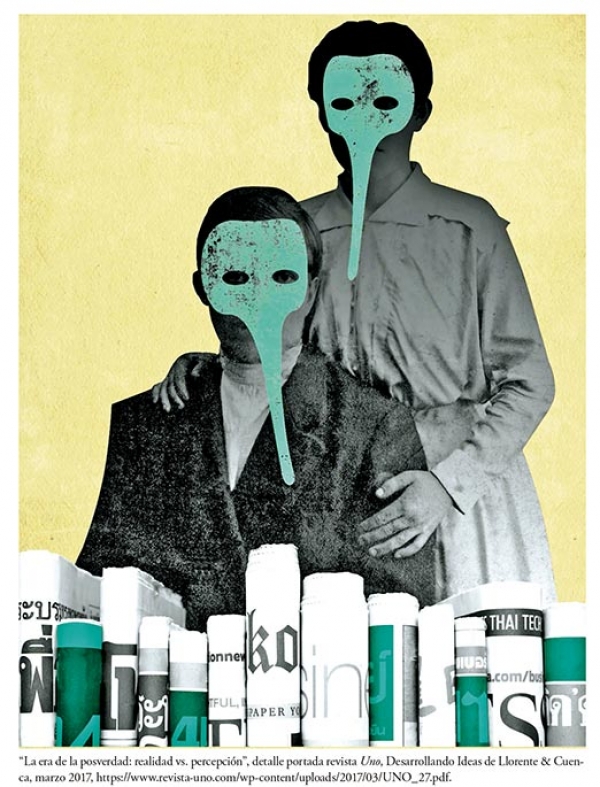Media objectives, whether for financial gain or political influence, cannot be, or should not be, above decency, truth and justice.
By Iñaki Chavez
Last April, Noticias Caracol published a false story that the media outlet itself described as an “error in the coverage” and which it retracted, ratifying its commitment to provide “transparent and truthful information, as always”. The media, which belongs to the Santo Domingo Group, lied and then apologised, but left the noise of its tweets with false information that ends up, in one way or another, permeating society and constructing those imaginaries that condition and dominate us.
“Lie, so that something remains”, a historical saying with a history behind it that is based on propaganda and manipulation. And it is this manipulation of information that is destroying the reliability and seriousness of the media, especially those that I call the mass media of dis-information and which are beholden to those who pay for the ink, the microphone or the camera.
Perhaps lying with the malicious intention that, by force of repetition, it will end up becoming a truth or a falsehood assumed as part of that ‘abnormal normality’ where, as Delavigne pointed out in his Les enfants d’Edouard: “The more incredible a slander is, the more memory the fools have to remember it”.
Noticias Caracol’s correspondent in Madrid (Spain) appeared on Thursday 21 April on the midday news “reporting” on the accusations against Petro made by Hugo ‘el Pollo’ Carvajal, a former official linked to Venezuelan state security who is now imprisoned in Madrid. The statement took place the following day and the man said nothing about possible Venezuelan financing of the presidential candidate’s campaign, nor did he make any other accusations.
For the International Federation of Journalists, the dissemination of false – or falsified – news produces “a dangerous circle of disinformation” favoured by the use of virtual networks that “allow users to be producers and consumers of content at the same time, and have facilitated the dissemination of misleading, false or fabricated content. This generates a vicious circle, and a fake news story is replicated thousands of times in a matter of seconds” (IFJ, 2018).
It is a serious matter that should rather make us reflect on this manipulation, this generalised disinformation that seems to have been installed among the media, not all, but an important part, with great power and high ratings, and which distorts reality to the benefit of those who pull the strings of political, economic and media powers; not forgetting, in the Colombian case, the military and its armed acolytes outside the law.
Bad practice and bad image for a media sector in Colombia, which is under suspicion for its excessive concentration and lack of impartiality.
“In Colombia, the media scene is clearly oligopolistic, and this concentration threatens a democratic system that is in itself excessively mediated by the financial and political powers that control the spectrum of written, radio and television information through submissive media that do not question what they say, but whose docility does threaten and question democratic values” (Chaves, 2020, p. 2199).
The current information panorama, what is produced by the media, and the current situation of audiences -televiewers, listeners, listeners and users of mobile devices-, greatly facilitates the ‘invasion’ of hoaxes, gossip, memes and other fauna of misinformation and lies.
“The new habits of information consumption in the mudflats of virtual networks, where people read in a hurry, where context takes a back seat and where unfounded and contrasted news coexist in equal measure, have created a toxic breeding ground that threatens the right of citizens to receive truthful information” (Tapia, Chaves and Gordo, 2020, p. 295).
You can read the full article at this link






